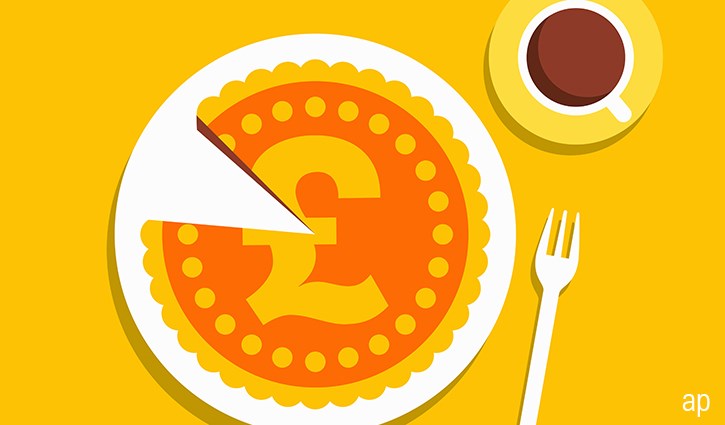
Capital gains tax (CGT) is a wide-ranging, complicated and much misunderstood tax – it also brings in billions to the government's coffers every year.
After a staggering amount of government spending to combat coronavirus and the introduction of stamp duty holiday on house purchases announced in July's summer statement, any changes to CGT are unlikely to be favourable to investors. Is the Government lining up a wealth tax raid to pay for all of this? The Office of Tax Simplication review into CGT, commissioned by the Chancellor, suggests that the tax could raise £14 billion a year under new proposals to double the rate to bring it in line with income tax.
"The disparity in rates between capital gains tax and income tax can distort business and family decision-making and creates an incentive for taxpayers to arrange their affairs in ways that effectively re-characterise income as capital gains," the report said.
What is CGT?
Capital gains tax is paid when an individual sells an asset, such as a second home or company shares, and from the sale they make a profit or “gain”. You pay tax on the difference between what you paid for an asset and what you sell it for – minus some "allowable expenses" such as house repairs etc.
What Are the Current Allowances and Rates?
Investors are given an annual allowance of £12,300 before any CGT. You then pay the tax on any profits above that amount in that tax year. The allowance resets annually on April 6 with the new tax year.
How much you tax pay depends on your income tax band: basic rate taxpayers pay 10% CGT on profits made above the allowance, for example if you made £20,000 profit you would pay 10% CGT on £7,700, a total of £770. The rate is higher on residential property though, at 18% on residential property. Anyone earning more than £50,000 a year (a higher rate taxpayer) pays 20% and 28% respectively.
Why Aren’t CGT Rates the Same as Income Tax or IHT?
You may have noticed that while a higher rate taxpayer pays tax of 40% on their income or in inheritance tax, they pay "only" 20% when they are selling an investment. Advisers we've spoken to think the most likely outcome is that CGT rates will in future be aligned with income tax rates. That means higher rate taxpayers can expect their CGT bills to increase significant.
"The majority of those who might occasionally have to pay CGT don’t usually have a clue what the rates or allowances are and assume they tie in with income tax; which I think is probably the plan," says Philip Hanley, adviser at Philip James Financial Services.
Is CGT Just for Rich People?
That’s a common misconception. There’s CGT to pay on conventional assets such as property and shares, but you also have to pay CGT on profit made on a personal possession worth more than £6,000.
The HMRC website mentions examples such as jewellery, paintings, antiques, coins and stamps. Collectors of books could be caught up in CGT: for example, if you’re lucky enough to own a Harry Potter first edition (or a whole set of them), you could be caught - one sold for £46,000 last year at auction.
How Much Does it Raise Each Year?
According to the most recent HMRC figures, some 260,000 individuals paid £8.2 billion of CGT on £56 billion of gains in the 2018/19 tax year. For comparison, in the same year 28,000 estates paid just over £5 billion in inheritance tax.
What’s Exempt?
Investments held within an Isa, some venture capital trusts, shares held in Enterprise Investment Schemes (EIS) and Seed Enterprise Investment Schemes, Government bonds (gilts) and some corporate bonds.
One of the benefits of owning funds and stocks in an Isa is that when you sell, you don’t have to pay any capital gains tax. Over a lifetime of Isa saving, this could save you a substantial sum when you come to sell – for example, when you need to raise costs for social care later in life.
Private cars and wine that can be stored for 50 years are also exempt, which explains the buoyant market in classic cars and posh plonk. But advisers warn that some of these exemptions could be removed in subsequent changes.
What if I Inherit Valuable Assets?
The value of assets is set at death rather than what the person bequeathing you the asset paid for it. If your late uncle paid £10,000 for a painting he leaves for you in his will, and that's now worth £100,000 you don't pay CGT on the difference.
Peter Chadborn, director at IFA firm Plan Money, thinks a change to this exemption is very unlikely because it would be seen as a double tax on beneficiaries (who are already paying inheritance tax) and would increase paperwork for trustees - many people inherit shares that were bought in an era when paper certificates were still in use, so finding the original purchase price is often tricky.
Do I Pay CGT When I Sell My House?
No, although there’s a tiny possibility that this could change. Some people have suggested this could be one way to address the generational gap in housing wealth. This is because it would hit those who've held on to their houses for the longest with big tax bills rather than those trying to make their way up the property ladder - but it's a guaranteed vote loser in Middle England.
Should I Sell Now to Avoid Higher Taxes?
Not necessarily, says Chadborn. If you were going to sell your asset anyway, for whatever reason, it's best not to wait until Budget day but "don't sell because of something that might happen," Chadborn says. Changes to pension tax relief have been expected for many years now and have yet to come to pass.
How Do I Avoid Paying CGT?
Each individual has a CGT allowance so spouses/civil partners can transfer assets if they’ve maxed out their allowance for the year. There are certain rules about gifting assets that an adviser can help you with.
Help! I’m Confused
If you can’t tell your chattels from your clogged assets, it’s worth seeing a financial adviser or accountant to help you. There are multiple rules about what’s an allowable expense and on carrying forward capital losses from previous years, and these too could be tweaked under the Chancellor's proposals. There are tax rules connected with the EIS too, which need to be borne in mind.




























